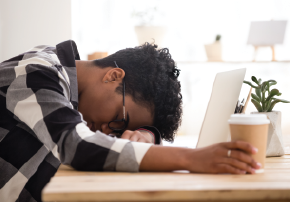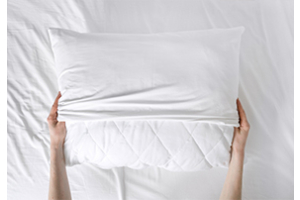Does pulling an all-nighter reset your sleep cycle?

Do All-Nighters Affect Your Sleep Cycle?
You’ve just flown across half the planet. It feels like you’re having breakfast for dinner. Should you force yourself to stay up those extra hours and acclimatise sooner to your new time zone?
Perhaps you’ve been sleeping lightly and you’re desperately craving that next, decent, deep night’s sleep. Will an all-nighter force your body clock to reset back to your normal sleep routine?
You’ve just worked an emergency all-night shift and you have that zombie-like ‘second wind’ as the sun rises. You’re functioning, barely. You could probably get through the day, sort of. But should you rather be heading for the bedroom?
When you have not slept all night, or you find yourself in a different time zone, you have incurred what we refer to as ‘sleep debt’. These are missed sleeping hours that build up and, at some point, need to be regained or paid back. Missed hours can’t be ‘written off’ or cancelled out simply by dragging yourself through to your next bedtime. But you should certainly try to regain, or sleep back, those hours.
Here’s why.
What happens during and after an all-nighter?
Let’s consider this from the point of view of what happens when we do get proper sleep, why it is so vital to our well-being, and the compromises we risk by building up a sleep debt.
“Sleep,” says Dr Rae, “should be considered our most important daily activity. When we sleep, our body is actively processing, repairing and reviving.”
1. The brain processes information
Experiences and learning are consolidated during sleep. This is when the brain builds up an archive of long-term memory for later reference or retrieval.
2. Important hormones are released
Melatonin is released by the pineal gland, which helps to regulate, or correct, our sleep cycle. A growth hormone is also released to help with body development and repair.
3. The sympathetic nervous system relaxes
With proper sleep we let go of tensions, challenges or worries that may have affected our day. Our cortisol, or stress hormone, levels reduce. Sleep is key to balanced mental health.
4. The immune system regenerates
During sleep the immune system releases proteins called cytokines. These are important for fighting infection, inflammation and helping to repair an injury.
These are by no means all the things that are going on inside our body when we sleep. But they give us a pretty good idea of what we’re losing out on. By pulling an all-nighter we are compromising these activities which we need to make the most of the following day. We need to regain, or sleep back, lost hours.
How to recover from an all-nighter.
“Our daily lives and nightly routines help re-enforce our bodies’ inner 24-hour clock,” explains Dr Dale Rae. “Depending on lifestyle and work commitments, we need to adapt a healthy, regular sleeping routine so that we are at our most alert when required.”
But, as we all know, not every day, or night, runs like clockwork. Stuff happens. There is no quick-fix to get back lost sleep. Dr Rae takes us through a few scenarios that might play out:
“The human body is actually really robust and resistant to the effects of just one night of sleep deprivation – like we experience when pulling an all-nighter. After losing sleep for an entire night, a recovery sleep the following night will almost certainly do the trick. As much as your body might beg you for a nap – especially in the afternoon – resist the temptation and opt rather for a slightly earlier bedtime that night. That way you resume a normal sleep pattern and avoid the risk of having your night-time sleep disturbed by your daytime nap. To help stay alert, keep busy – physically and mentally. Beware of consuming stimulants like sugar and energy drinks to stay awake. As much as a sleep-deprived body craves sugar or caffeine, it will almost certainly exacerbate your low energy dip in the afternoon.”
“If you have the flexibility to sleep in the morning straight after an all-nighter, keep it short, 1-2 hours, or even a power nap of 15-30 minutes will help. Just take care not to sleep past 11 a.m., or midday at the latest. The goal is to get back to your usual sleep-wake pattern as soon as possible. If you manage to sleep through the night but wake up an hour or two earlier than normal, that’s okay. Get up and begin your morning as normal, with a few hours’ head start.”
How to avoid an all-nighter.
All-nighters are usually emergency strategies and not best practice if we are wanting to be efficient and productive. There are times, of course, when they are unavoidable. We are human after all. Other than a milestone celebration or a medical emergency, the most likely candidates for the occasional all-nighter are situations where people find themselves at an urgent and necessary crunch-time deadline. There are a few alternatives, however, that could anticipate and prevent the need for an all-nighter.
Amongst students and corporate workers, often, in retrospect, all-nighters can be avoided with more strategic time management. If you're in a flux of work overload, consider putting in an extra hour or two each day to chip away at your project. Get up a couple of hours earlier, or go to sleep slightly later, whichever works better for your lifestyle commitments and levels of concentration.
Take care, though, that you don’t start making those extra work hours part of your routine, rather than a short-term solution. Workload creep is typical of today’s demanding and competitive environment. At some point, you need to start paying back your sleep debt to ensure you are getting the right amount of quality sleep every night.
Dr Rae puts this all into perspective in terms of our sleep needs:
“It may feel counterintuitive, but think about prioritising your sleep needs. Put your sleep first. Instead of cramming in extra work hours, consider making the quality of your sleep the yardstick of your daily efficiency and productivity. You may very well find that you start getting through a lot more in less time."
All night, every night, with Dial•a•Bed.
One of the healthiest lifestyle investments you can make is the perfect mattress. Your quality of sleep is integral to sustained, high performance. If you’re driven by how much you achieve in your day, ensure that you have an equally efficient mattress. Waste no time. Go straight to www.dialabed.co.za and find your perfect sleeping partner. If you’re finding it difficult to correct your work-sleep balance, consult with a knowledgeable and experienced sleep scientist at www.sleepscience.co.za. Whatever your dreams and ambitions, sleep is the bedrock of helping you get there. #SleepForLife.






